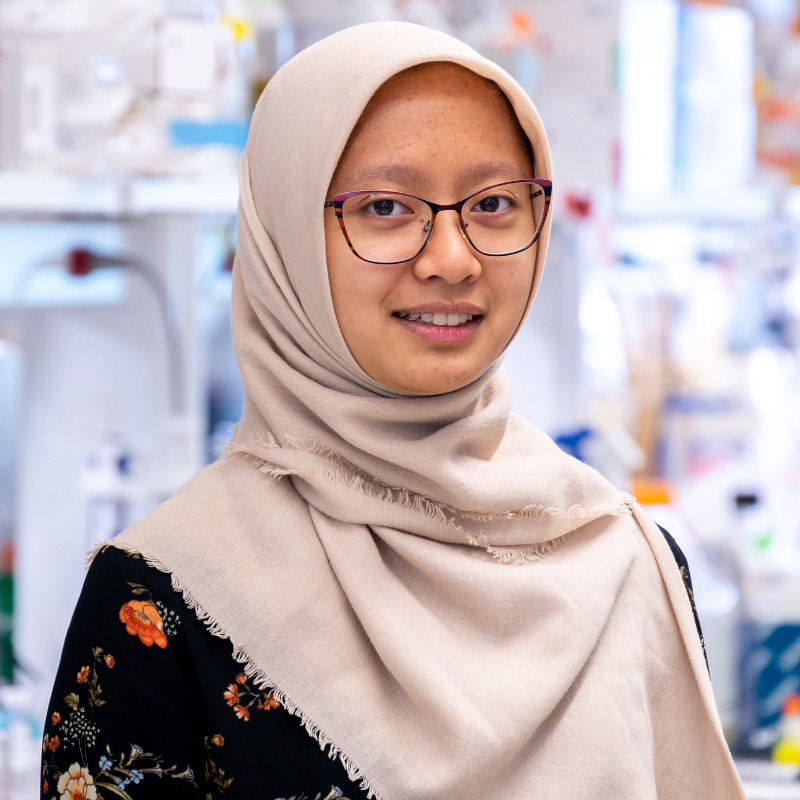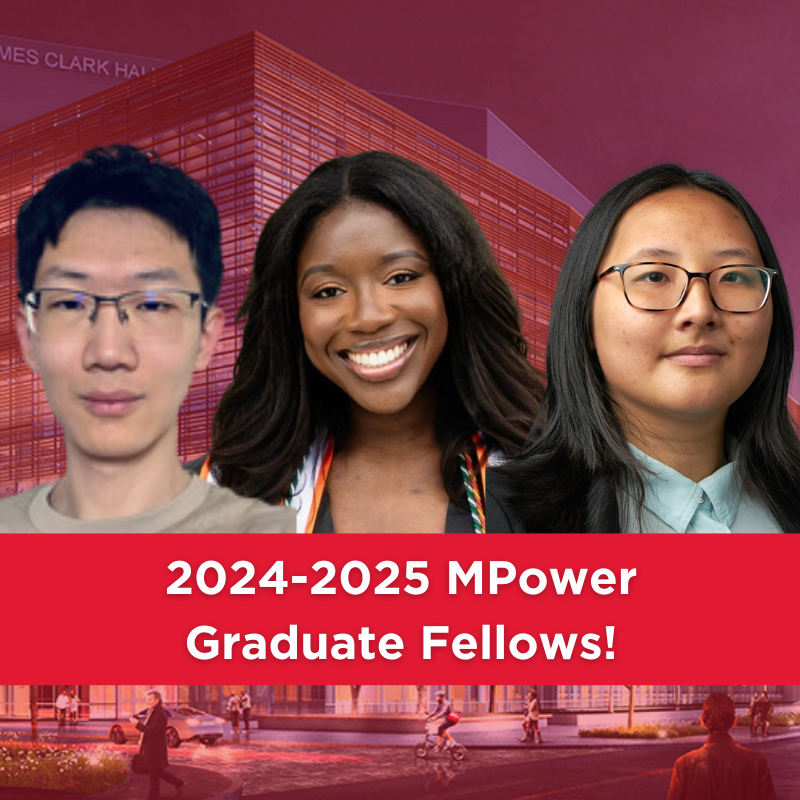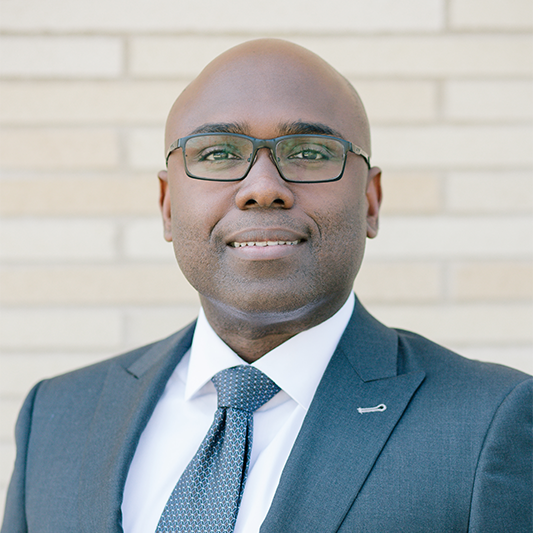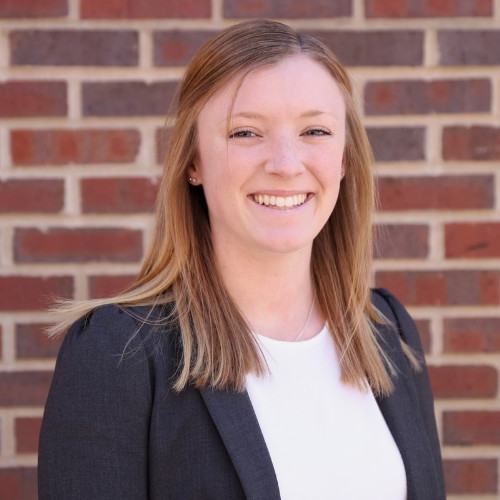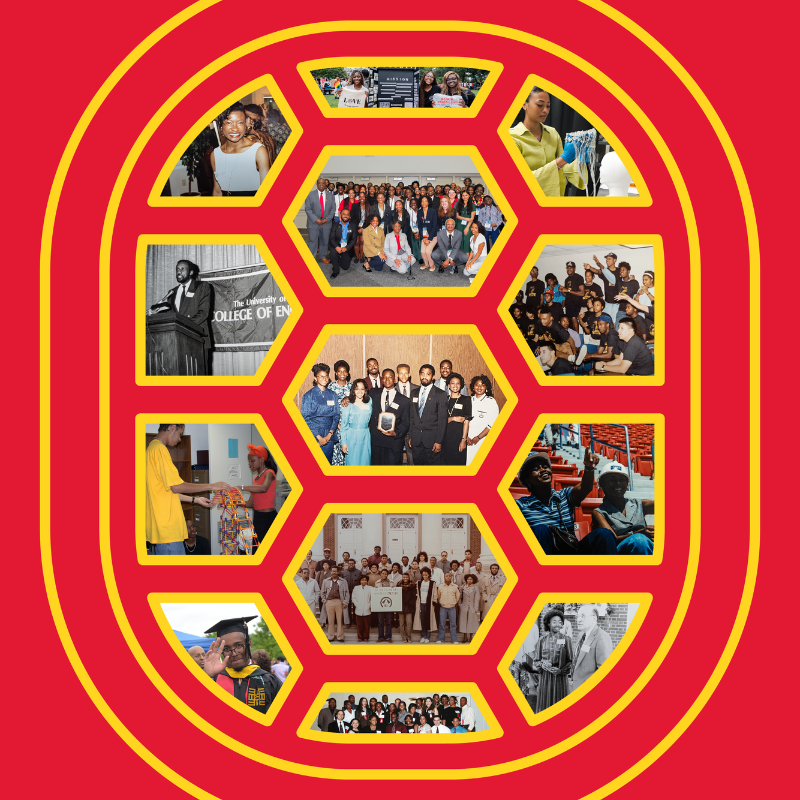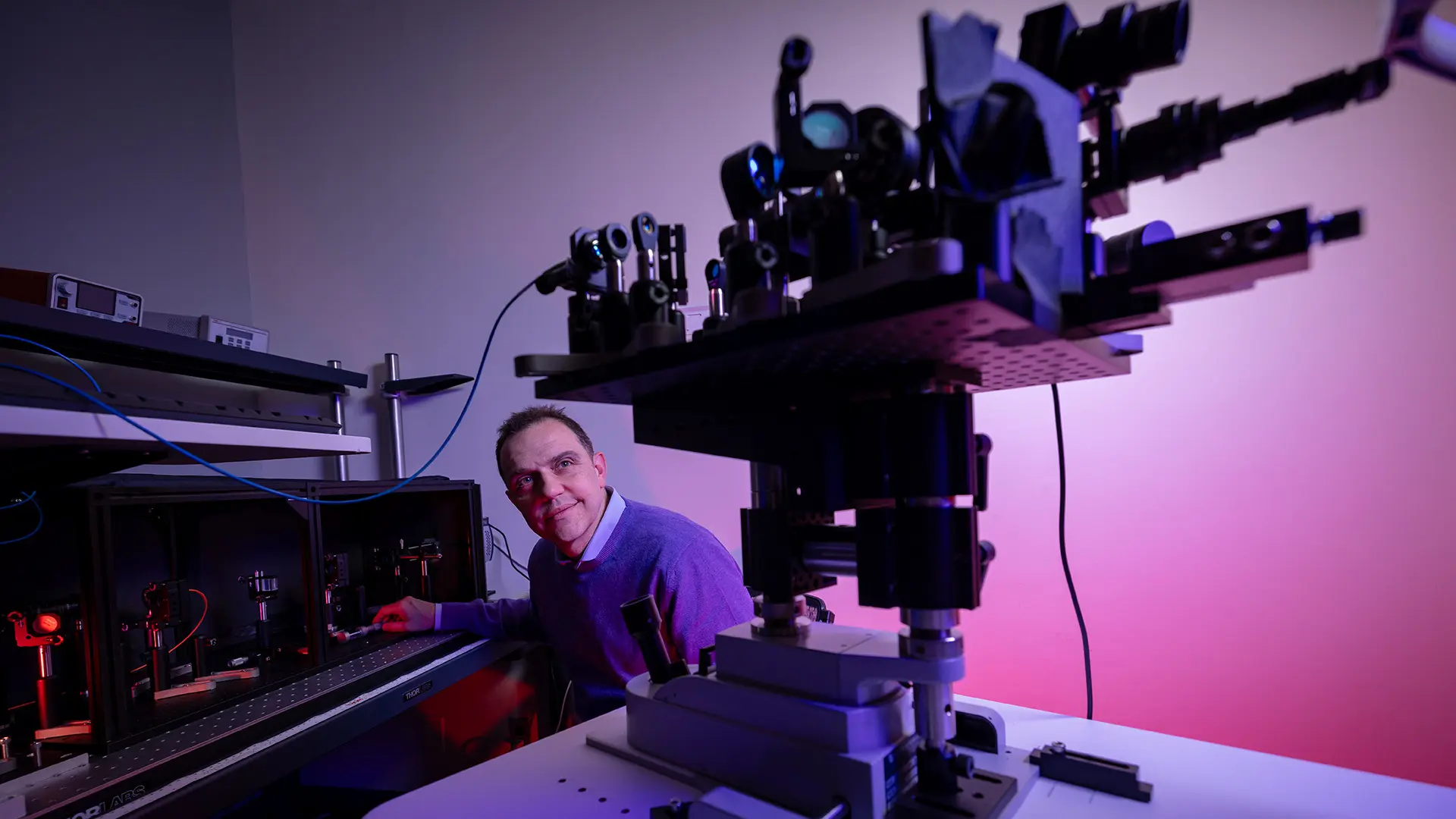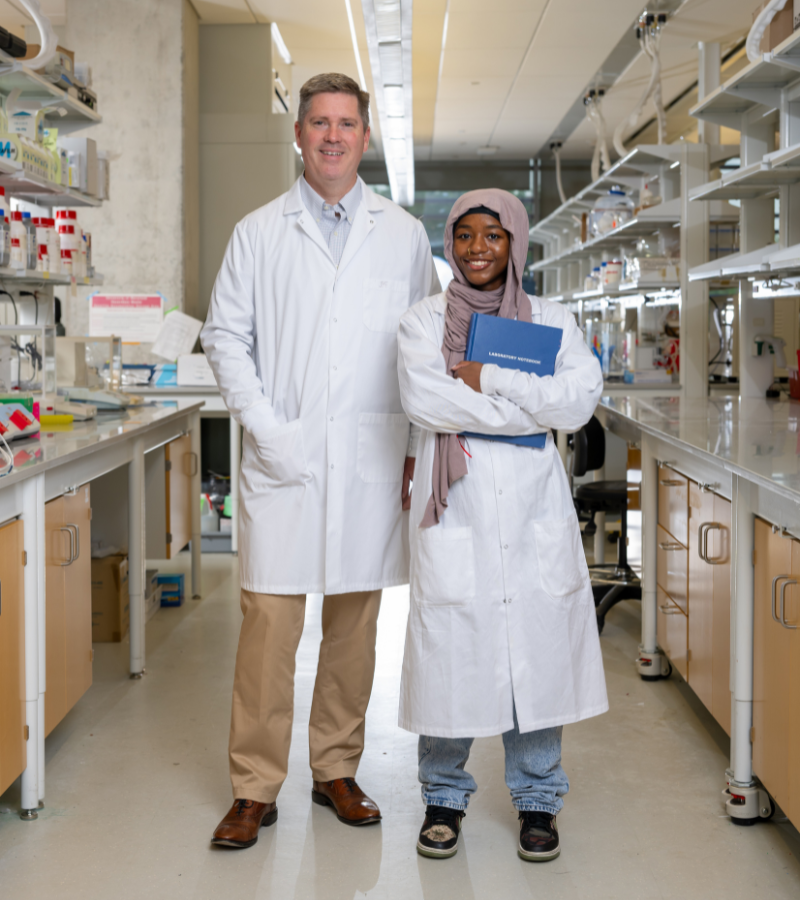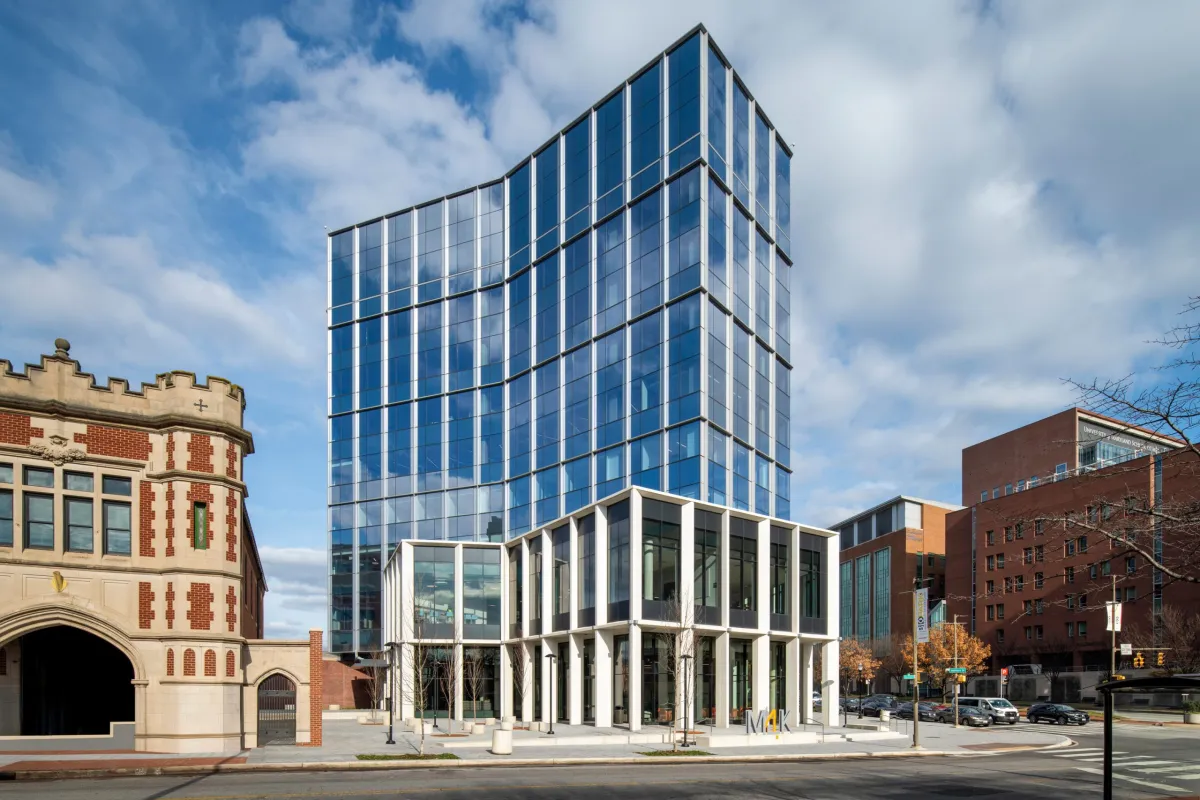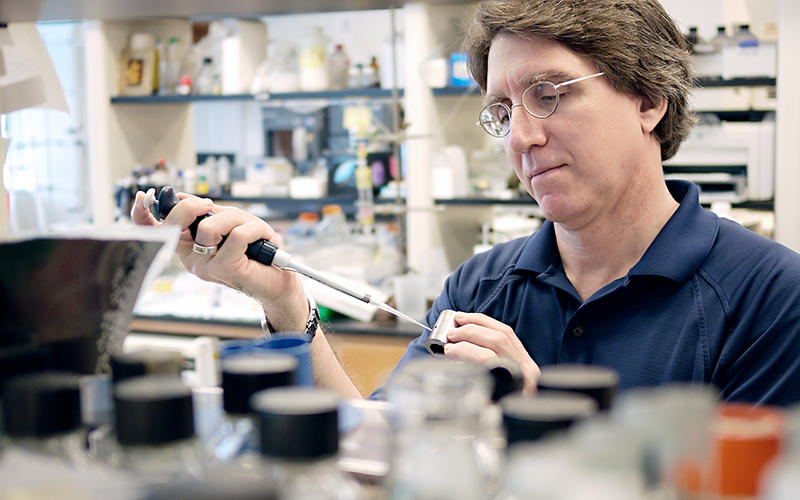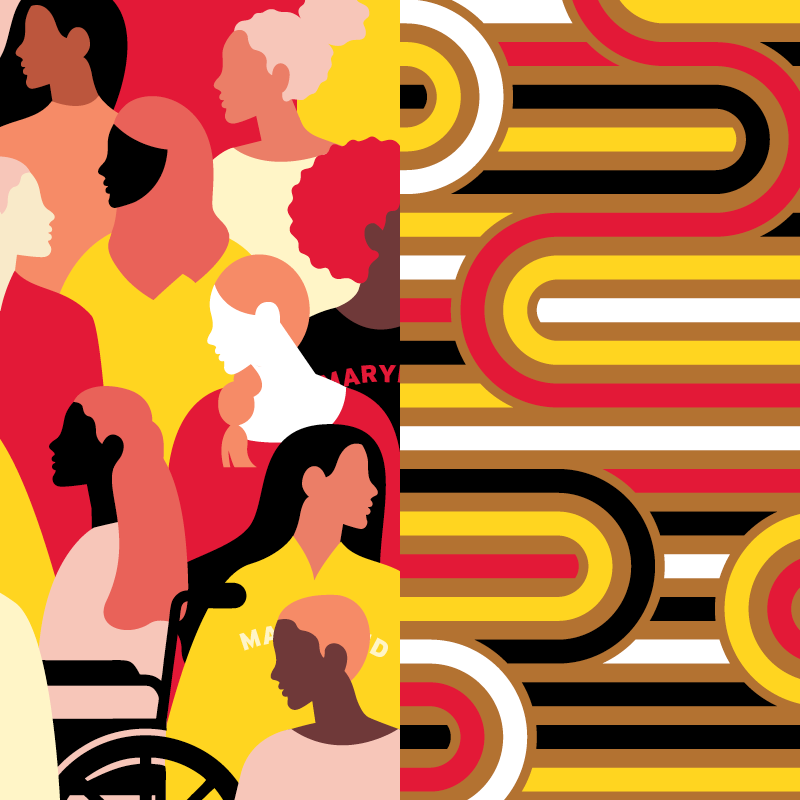News Story
BioE, FDA Offer Summer Research Experiences for Undergrads
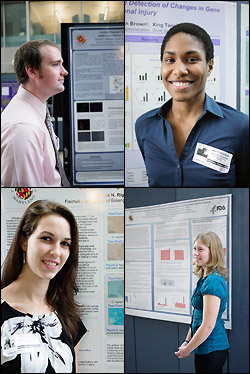
Participants in the 2010 REU program who presented their work at the FDA included, clockwise from top left: Daniel Healy (Washington State University), Anika Freeman (University of Maryland), Ellen Tworkowski (Carnegie Mellon University), and Corrine Riggin (University of Maryland). Freeman and Riggin are both rising seniors from the Fischell Department of Bioengineering.
The NSF's REU program promotes and supports the involvement of undergraduate students in labs where they can play an active role in new or ongoing research. Student participants are typically rising seniors who live and work for the summer at schools other than those they attend, and receive a stipend for their living expenses. The program also creates networking opportunities and helps host schools recruit talented individuals who may one day return as graduate students.
BioE's 10 REU program participants recently joined other students working at the FDA at its Salute to Science Summer Intern Poster Session, where they presented the results of their research.
REU student Ellen Tworkowski (Carnegie Mellon University) spent her summer at the FDA, where she worked with her mentor, Kenneth Phillips, on a project that seeks to improve the efficacy of contact lens cleaning solutions by preventing the buildup of potentially toxic biomolecules. It was the first time she had been involved in designing an investigation process. "This was a good project for me because it was just starting up when I got here," she says. "[Previously] a lot of what I'd done was gathering data."
Charles Warr, associate director for laboratories at the FDA's Office of Science and Engineering Laboratories, says the REU partnership provides the FDA with some unique benefits as well. "Undergraduates are all excitement," he explains. "They're all about letting us see the work that we've looked at for too long through another set of eyes. They're asking us all sorts of questions we hadn't thought of. Some of those questions are very leading and help us think about things we thought we'd already dealt with."
Victor Krauthamer, director of the FDA's Division of Physics, who worked with REU participant Kelli Carter, agrees. "[The undergraduates] know no bounds," he says. "They don't know the limitations [of the science] so sometimes there are things you think can't be done that they can do because of their energy and enthusiasm."
He has also enjoyed working with the faculty advisors from the Clark School. "Intellectually, we can get isolated here…having some professors involved in our research has been a real benefit to us," he says. "Because we're involved in device regulation, the more we communicate our problems to the academic world, the more it focuses their research in ways that help us and ultimately help the public."
Students who chose projects on the College Park campus found the experience no less rewarding. "I definitely learned a lot about research, about working in the lab, and about working with other people," says Justin Rosch (Clarkson University), who studied single biomolecule samples with Assistant Professor Joonil Seog, using an optical mini tweezers system—a piece of equipment to which very few people have access.
Alexander O'Connell (Cornell University) found his time in Assistant Professor Ganesh Sriram's lab, where he mapped the carbon traffic though plants, invaluable. "I would definitely encourage anyone who thinks they have any kind of interest in going into research to [participate in] one of these programs because it was a great experience," he says. "We got right into the labs, full time."
Learn More:
Visit BioE's Molecular and Cellular Bioengineering REU Program page »
Contact Associate Professor John Fisher, director of BioE's REU program, at jpfisher@umd.edu.
Published August 9, 2010
